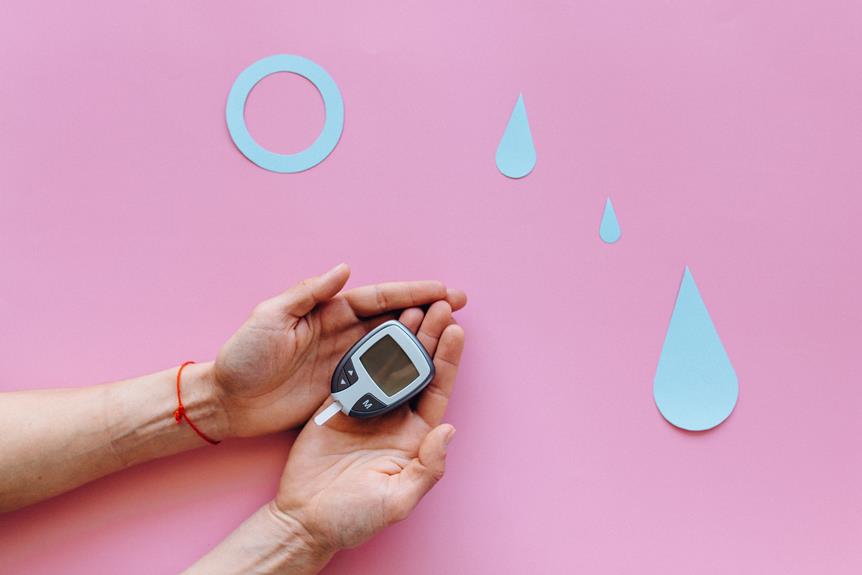What Is Woman Infertility Causes and Risk Factors

Are you struggling with infertility? Look no further as we dive into the causes and risk factors of female infertility.
In this informative article, we will explore the impact of hormonal imbalances, age-related decline, structural abnormalities, polycystic ovary syndrome, chronic conditions, and lifestyle factors on fertility.
Discover the factors that may be hindering your ability to conceive and gain valuable insights into potential solutions.
Join us as we uncover the keys to unlocking your path to parenthood.
Key Takeaways
- Hormonal imbalances, chronic stress, and unhealthy diets can disrupt hormonal balance and affect fertility.
- Age-related decline in fertility is influenced by physiological changes, unhealthy habits, and certain genetic conditions.
- Structural abnormalities in the reproductive organs, such as uterine anomalies and fallopian tube blockages, can interfere with conception and implantation.
- Conditions like PCOS and chronic illnesses like diabetes, autoimmune disorders, and thyroid diseases can impact hormonal balance and reproductive function.
Hormonal Imbalances and Their Impact on Fertility
One of the key factors contributing to female infertility is the presence of significant hormonal imbalances, which can greatly impact the chances of conception and successful pregnancy. Hormonal imbalances occur when there is an abnormality in the production or regulation of hormones in a woman’s body.
Stress plays a crucial role in disrupting hormonal balance. When a woman is under chronic stress, her body releases higher levels of cortisol, which can interfere with the normal functioning of the reproductive system.
Additionally, nutrition plays a vital role in maintaining hormonal balance. A diet rich in essential nutrients, such as vitamins, minerals, and omega-3 fatty acids, can support hormone production and regulation. On the other hand, an unhealthy diet lacking in these nutrients can disrupt hormonal balance and negatively affect fertility.
Therefore, addressing stress levels and adopting a healthy, balanced diet are crucial in restoring hormonal equilibrium and improving chances of conception and successful pregnancy.
Age-Related Decline in Fertility
What are the factors that contribute to the age-related decline in fertility? As women age, their fertility naturally decreases due to various factors. These factors can include physiological changes in the reproductive system, hormonal imbalances, and the quality of the eggs. Additionally, lifestyle choices such as smoking, excessive alcohol consumption, and poor nutrition can also impact fertility. To provide a visual representation of these factors, the following table outlines the main contributors to age-related decline in fertility:
| Factors | Explanation |
|---|---|
| Physiological changes | The reproductive system undergoes natural aging processes, leading to reduced egg quality and quantity. |
| Hormonal imbalances | Decreased levels of certain hormones can affect the regularity and quality of ovulation. |
| Lifestyle choices | Unhealthy habits like smoking, excessive alcohol consumption, and poor nutrition can negatively impact fertility. |
| Genetic factors | Certain genetic conditions can increase the risk of fertility decline with age. |
It is important to note that age-related decline in fertility can have a significant psychological impact on individuals and couples. This can lead to feelings of sadness, frustration, and disappointment. Fertility preservation techniques, such as egg freezing, can provide hope and options for individuals who wish to delay parenthood.
Structural Abnormalities Affecting Reproductive Organs
Significantly, structural abnormalities affecting reproductive organs can have a profound impact on an individual’s fertility and reproductive health. Uterine anomalies, such as septate or bicornuate uterus, can interfere with implantation and lead to recurrent miscarriages. Additionally, conditions like uterine fibroids or polyps can disrupt normal uterine function and hinder successful pregnancy. Another common structural abnormality is fallopian tube blockage, which can prevent the fertilized egg from reaching the uterus, resulting in infertility. This can be caused by infections, endometriosis, or previous surgeries. It is important for individuals with these abnormalities to seek medical intervention and explore treatment options such as surgery or assisted reproductive techniques.
Transitioning into the subsequent section, another significant cause of infertility is polycystic ovary syndrome (PCOS) and its role in reproductive health.
Polycystic Ovary Syndrome (Pcos) and Its Role in Infertility
Moreover, several studies have shown that approximately 70-80% of women with polycystic ovary syndrome (PCOS) experience infertility due to irregular ovulation and hormonal imbalances.
PCOS, a common hormonal disorder in women of reproductive age, not only affects fertility but also has a significant impact on overall health.
PCOS management plays a crucial role in addressing these concerns and improving the quality of life for affected individuals. Effective management strategies include lifestyle modifications, such as regular exercise and a healthy diet, as well as medications to regulate ovulation and hormone levels.
It is important to address the impact of PCOS on overall health, as women with PCOS are at a higher risk for developing conditions such as type 2 diabetes, cardiovascular disease, and endometrial cancer.
Chronic Conditions and Their Effect on Fertility
One potential factor that can impact fertility is the presence of chronic conditions, as they can affect hormonal balance and reproductive function in individuals. Chronic illnesses such as diabetes, autoimmune disorders, and thyroid diseases have been linked to infertility. These conditions can disrupt the normal hormonal patterns necessary for ovulation and implantation, making it difficult for individuals to conceive.
Additionally, the medications used to manage chronic illnesses can also have an impact on fertility. Some medications may interfere with the reproductive system, affecting the quality and quantity of eggs produced or disrupting the implantation process. It is important for individuals with chronic conditions to work closely with their healthcare providers to manage their conditions and explore options for preserving fertility.
Transitioning into the subsequent section, lifestyle factors also play a significant role in female infertility.
Lifestyle Factors and Their Contribution to Female Infertility
Lifestyle choices, such as diet and exercise, have been shown to have a direct impact on female fertility. Dietary choices play a significant role in a woman’s reproductive health. A diet rich in fruits, vegetables, whole grains, and lean proteins provides essential nutrients that support hormone production and overall reproductive function.
On the other hand, a diet high in processed foods, unhealthy fats, and sugars can disrupt hormonal balance and negatively affect fertility. Stress management is another crucial factor in female fertility. Chronic stress can disrupt the delicate hormonal balance necessary for ovulation and conception.
Incorporating stress management techniques, such as exercise, meditation, and relaxation techniques, can help reduce stress levels and improve reproductive health. By making positive lifestyle choices, women can optimize their fertility and increase their chances of conceiving.
Frequently Asked Questions
What Are the Treatment Options for Hormonal Imbalances That Impact Fertility?
Hormonal imbalance treatment options vary depending on the underlying cause and may include medication, lifestyle changes, and assisted reproductive techniques. Addressing hormonal imbalances can help improve fertility and increase the chances of successful conception.
How Does the Age-Related Decline in Fertility Affect a Woman’s Chances of Getting Pregnant?
The age-related decline in fertility can significantly impact a woman’s chances of getting pregnant. As women age, the quality and quantity of their eggs decrease, making it more difficult to conceive naturally.
Can Structural Abnormalities Affecting Reproductive Organs Be Corrected Through Surgery?
Surgical interventions can correct structural abnormalities affecting reproductive organs, offering potential solutions for women experiencing infertility. This approach aims to address specific conditions that may hinder conception and improve the chances of successful pregnancy.
What Are the Main Symptoms of Polycystic Ovary Syndrome (Pcos) and How Does It Affect Fertility?
Polycystic ovary syndrome (PCOS) is a hormonal disorder characterized by enlarged ovaries with small cysts. It can cause irregular periods, excessive hair growth, and weight gain. PCOS can also lead to fertility complications due to hormonal imbalances and difficulty with ovulation.
Which Chronic Conditions Are Most Likely to Have a Negative Effect on a Woman’s Fertility?
Chronic conditions such as polycystic ovary syndrome (PCOS), endometriosis, and thyroid disorders can have a negative impact on a woman’s fertility. Hormonal imbalances associated with these conditions can disrupt the ovulation process, making it more difficult to conceive.









